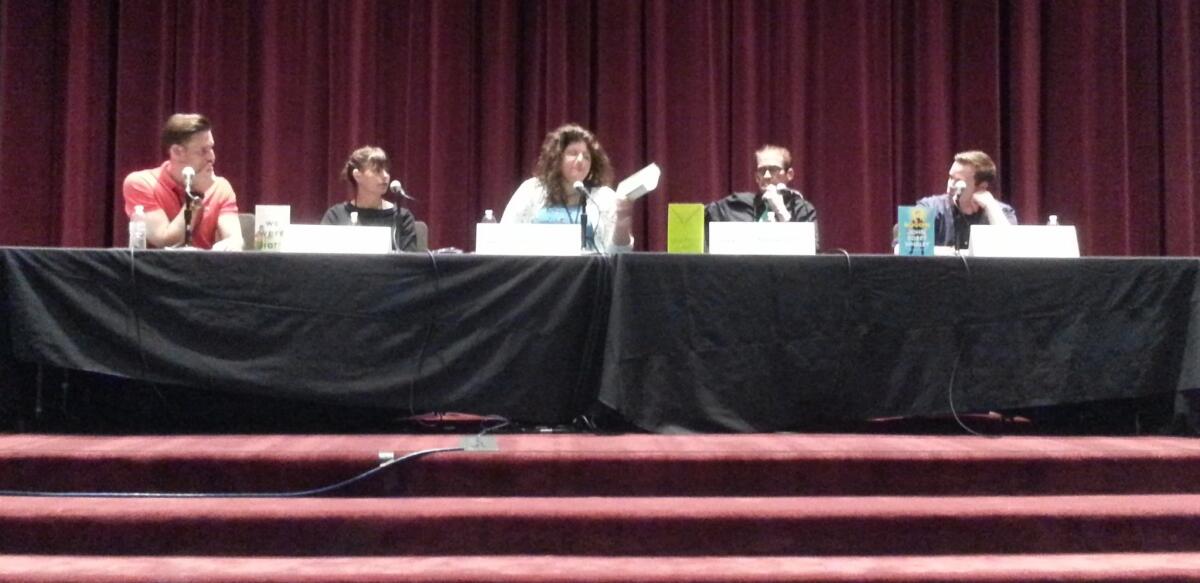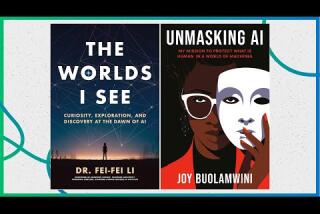Festival of Books: Mutant grasshoppers, body image and other YA themes

Young adult authors at the Festival of Books on Saturday dove straight into their experiences in writing about young characters who deal with social, physical and mental limits, and how they find their own identities while writing about privilege, mutant grasshoppers, college or cryogenic experimentation.
Moderator Aaron Hartzler on a panel titled “Young Adult Fiction: Testing the Limits” started by asking panelists E. Lockhart, Rainbow Rowell, Andrew Smith and John Cory Whaley about pushing boundaries for young adult literature in each of their recent books.
FULL COVERAGE: Festival of BooksIn “We are Liars,” Lockhart explores the life of Cadence Sinclair, a teenager from a privileged family who suffers from severe migraines and is on heavy medication. Lockhart says she enjoys writing about privilege in America and how there are still social and racial constraints in our culture.
She also conceded that her book entails the “struggle with the body you’ve been given,” something at the core of many coming-of-age stories.
Lockhart is also a children’s books author (under the name Emily Jenkins) and also writes the Ruby Oliver novels, which started with “The Boyfriend List.”
In their recent work, Rowell and Whaley delve into the internal conflicts young minds deal with. For Rowell’s character in “Fangirl,” it is a mental struggle with social anxiety; for Whaley’s character in “Noggin,” the struggle is both mental and physical (the character discovers he is still alive after his head got cut off and attached to a new body).
INTERACTIVE GAME: How to be a writer
Rowell says she writes about her own uncomfortable boundaries. “I tend to take frightening things about myself and I haven’t run out yet,” she said.
Whaley’s debut novel, “Where Things Come Back,” is the first to win both the 2012 Michael L. Printz Award and the William C. Morris Award.
For Smith, it’s always been about resisting boundaries, especially considering gender constrictions.
“I don’t like labels like ‘boy’ books or ‘girl’ books … because I just write about people that I know in the real world,” Smith said. In his most recent book, “Grasshopper Jungle,” Smith says he wrote about the frustration of being a “boy” in a conservative setting, and the lack of compassion in modern society.
When the audience asked questions, a familiar one for young adult authors is the obvious: Why do they write about teenagers and young people? Smith said “there is a lot of wiggle room” if the young character makes a mistake, which helps with “getting the reader to love the character.”
More to Read
Sign up for our Book Club newsletter
Get the latest news, events and more from the Los Angeles Times Book Club, and help us get L.A. reading and talking.
You may occasionally receive promotional content from the Los Angeles Times.







